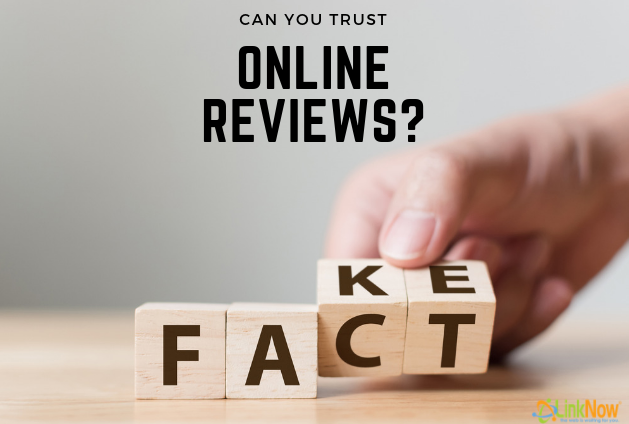
In the age of digital marketing and Search Engine Optimization, there’s no shortage of ways for small businesses to attract customers. You can create an easy-to-navigate website, submit it to search engines, implement Google Analytics, and create a slew of social network business profiles.
But at the end of the day, the most significant determinant for whether a client will waltz into your store or walk on by isn’t something a savvy marketing agency can buy. It’s the customer review.
Here at LinkNow, we’re firm believers that every business owner should embrace the power of the customer review and its persuasive powers.
1. Consumers Trust Other Consumers
Studies show that 84% of consumers trust a company’s online reviews as much as a recommendation from their own friends.
This might surprise you but trust us when we say it’s true. And it makes sense. When a customer posts a review online, they don’t have any agenda other than to share their own experience. Clients trust this, and it shows.
2. Show, Don’t Tell: A Customer Review Shows Other Consumers How Great You Are
Any company in the world can say they’re the best at what they do. In fact, every single company says that, don’t they? When you look at these over-the-top claims from the vantage point of a consumer, they seem a little generic and fluffy, don’t they?
Consumers are smart, and they know that it is in your best interest to say you’re the best plumber in the area. What they want is proof that this is true. And what’s better proof than a 5-Star review from a satisfied customer?
3. When You Embrace Customer Reviews, You Are Embracing Honesty and Transparency
74% of consumers polled in a 2016 study show that positive reviews make a business seem more trustworthy. Transparency is incredibly important to customers these days. And when you ask clients to leave reviews for your business and share reviews on your website, you’re embracing transparency to the fullest. You’re letting those who have first-hand experience with your company do all the talking (and advertising!) for you.
4. Online Reviews Have a Positive Impact on Your Revenue!
A 2016 Harvard Business School study reveals that as your Yelp rating rises, your revenue follows suit.
To not promote your Yelp and Facebook page—and those many glowing reviews—through your website would be a major oversight.
5. Good Reviews Inspire Good Reviews
Lastly, we tell all our clients that there is no shame in politely asking a customer to share their experience on Yelp or Facebook. Everyone does it and most customers are happy to oblige.
However, if clients happen to come across your business profile online, they might feel inclined to leave a review on their own volition—especially if everyone else already seems to be doing it.
Want Reviews on Your Website—LinkNow Media Can Help!
The customer review is the greatest asset in the world of marketing. If you’re sitting on pages of positive reviews you’d be foolish not to place them front and center for the world to see!
Already have a LinkNow website? Why not ask your web designer to add some reviews to it? Don’t have a LinkNow website yet? Why not speak to an SEO specialist and get the leads you need to succeed!
Give us a call at 1-888-667-7186 or send an email to website@linknowmedia.com. And if you have a comment or question, leave a reply below!









